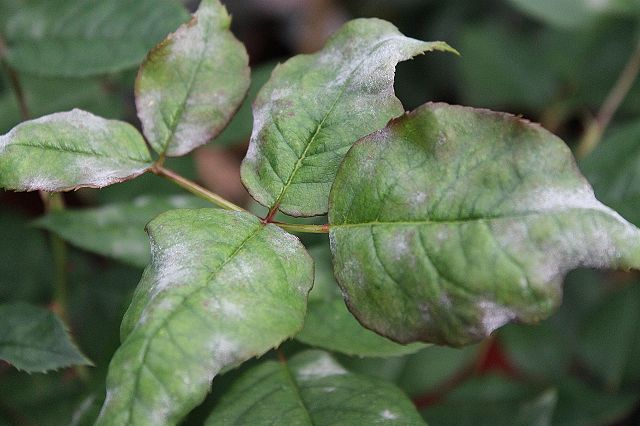A garden year without infestations of powdery mildew and black spot on the favorite roses is a great wish of every rose lover. Most of the time, however, bad weather throws a curve ball and sensitive varieties in particular develop the ugly spots on the leaves or the powdery light coating of downy mildew settles on them.
Plant protection is a difficult topic - hardly any garden lover likes to spray his garden. But with the correct preventive measures you can keep your rose treasures healthy, treat them with natural remedies and minimize the use of sprays. Take a close look at the plants once a week, so you can determine whether the garden roses are healthy or need a little more attention.
Sick leaves can be plucked off immediately during such inspections and fallen leaves can be collected. Please always dispose parts of sick plants in the household waste.

Strengtheners, such as "Vitanal" or broths from nettles or field horsetail serve to maintain health and can be applied regularly.
In the case of sensitive rose varieties or a heavy infestation in the previous year from which a high fungal spore load is present in the environment, early treatment is crucial. As soon as the roses have made a budding of about 10 cm (middle/end of April) it is the right time for the so-called bud spraying.
Spraying should not be done at midday when the sun is strong, the moist spray can cause burns and the effectiveness of the products can be reduced by the UV light. Likewise, do not spray during rainy weather or very cool days.
Schedule repeat sprays at 3 - 4 week intervals. Because of the long duration of effect, it is best to start with a product containing the active ingredient Azoxystrobin for the bud spraying. For further treatment, switch to a product with a different active ingredient to prevent the effect from weakening as the fungal pathogen becomes resistant to the ingredient.
Plant protection measures against aphids should be refrained from. Garden birds, such as breeding tits, will take care of this. If the infestation is more severe, rinsing with a garden hose will help. Spider mites (red spider mites) can be controlled by using neem oil or rapeseed oil.
To find your way through the "jungle" of pesticides approved for home gardens, seek detailed advice on the selection at your local garden supply store.
